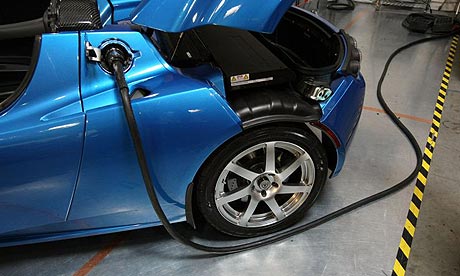The Europeans are considered the biggest fans of all things green and environmentally friendly and they supported the idea of biofuels, electric cars, hybrids and ultra high efficiency internal combustion engines.
With the European economies suffering the fallout of the American sub-prime ponzi scheme and facing the very real prospects of collapse of the Euro, many Governments are no longer keen to dish out subsidies on green technology.
For car companies, only ultra-efficient internal combustion engines - both petrol and diesel - are the only economically viable options and they can continue without any subsidies and this dramatic change in the subsidy landscape will have massive effect on the electric and hybrid car market in Europe.
According Automotive Industry Data (AID), a well known European automotive analyst, the dramatic improvement in fuel efficiency of both petrol and diesel engines together with fast evaporating Government support is seeing significant reduction in the sale of hybrid and electric cars.
Below is an excerpt of the AID report;
By any stretch of the imagination, first reactions to what is widely seen as the first year of an electric car era is judged a mild disappointment at best. That's driven home by the segment's track record in Norway, where electric car owners are pampered more than anywhere else. Compared to the skyhigh prices of Norway's heavily taxed conventionally powered cars, totally tax-free electric cars are only marginally more expensive. Given this red-carpet treatment it comes hardly as a surprise to learn that Norway has a higher electric car sales share than any other market in Europe. And yet, as almost anything in life is relative, the same naturally goes for today's electric car world.
During the eleven months to November this year some 1,768 electric cars were sold in Norway. That adds up to a 1.4 per cent market share, which remains unmatched anywhere else in Europe. To put that into perspective, total electric car sales in Germany, Europe's biggest car market, reached only a marginally higher 1,911 units during the ten months to October this year. Also combined US sales of the Nissan LEAF and GM's Volt reached a no less underwhelming 14,862 units during this year's eleven months to November. All this bears testament to the current plight of electric car makers. Given today's electric car prices, it goes without saying that precious few would be sold without a sizeable launch aid. And yet, despite these substantial financial electric car incentives like the £5,000 government aid currently offered by the UK government, UK sales during the eleven months to November reached just 1,055 units; that's a 0.06 per cent market share.
By any measure, and not just in Europe, but in the US no less, for what was hailed as the beginning of an electric car future has been a damp start. The electric car industry will probably keep its fingers crossed in the hope of an altogether brighter horizon. However, their wishes, it seems, may not be granted, at least not in the short and medium term. Why? Oil-rich Norway apart, and given the likelihood of fast slowing economic growth, or worse still, the realistic prospect of a recession gripping most of Europe next year and even the year after, the region's cash strapped governments will find it increasingly difficult to fork out electric car subsidies to prospective buyers who in all likelihood are already blessed by above average disposable incomes. Uncharitable perhaps, but in these austere conditions, some would see electric car subsidies as more handouts for the rich.


No comments:
Post a Comment